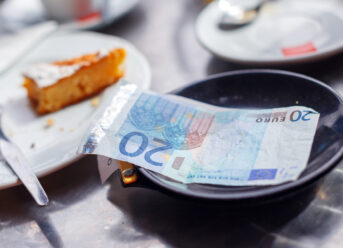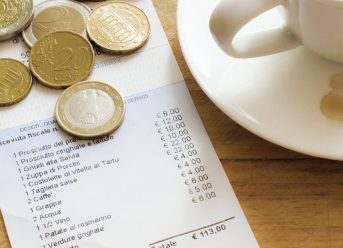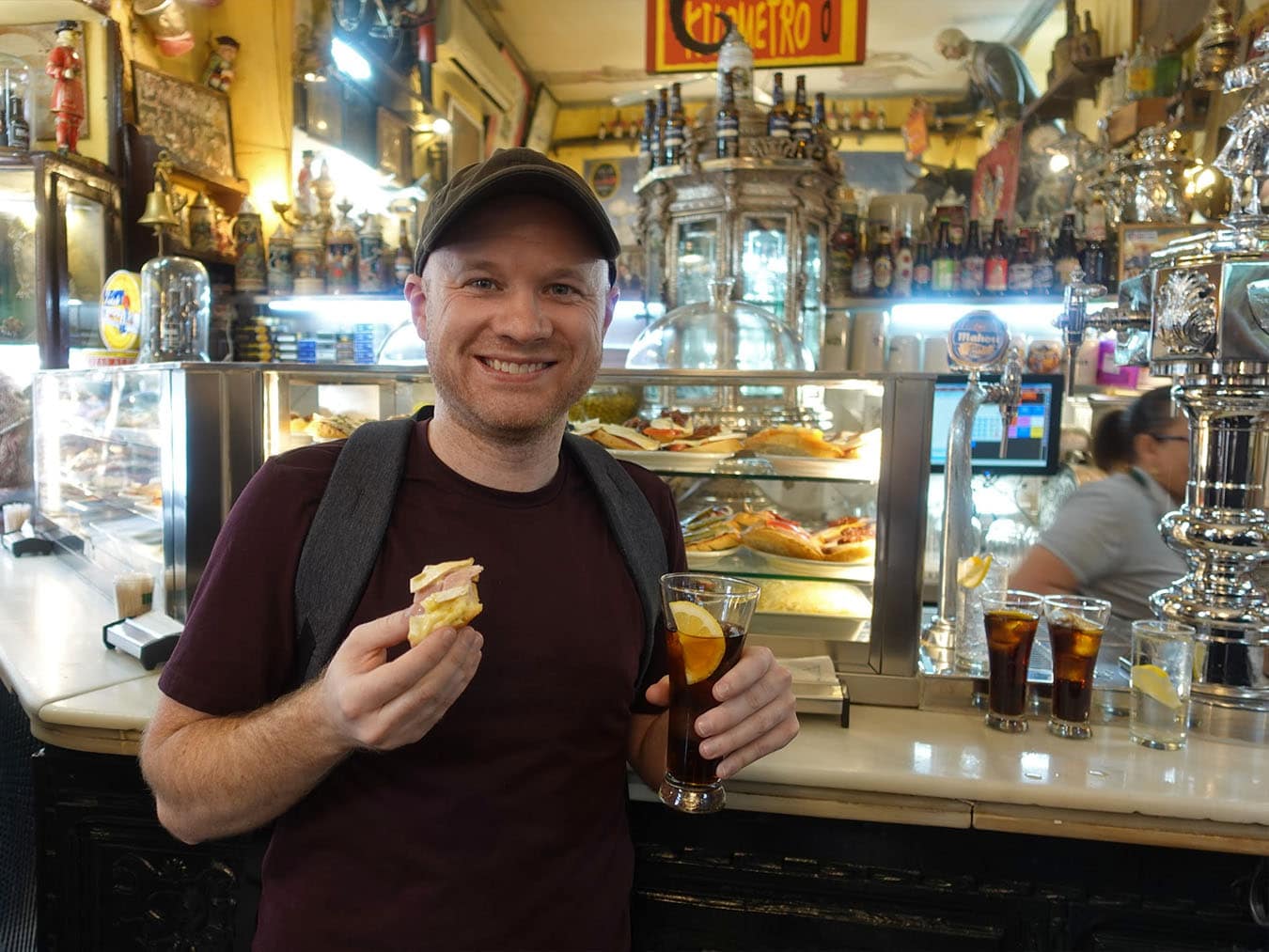
Traveling on a budget is hard enough and it’s even harder when you make costly travel mistakes. Lucky for you, I’ve wasted plenty of money by making all kinds of travel mistakes so use my misfortune to your advantage.
So, without further ado, let’s get on to our list of expensive travel mistakes you’ll want to avoid.
Paying Excessive ATM Fees
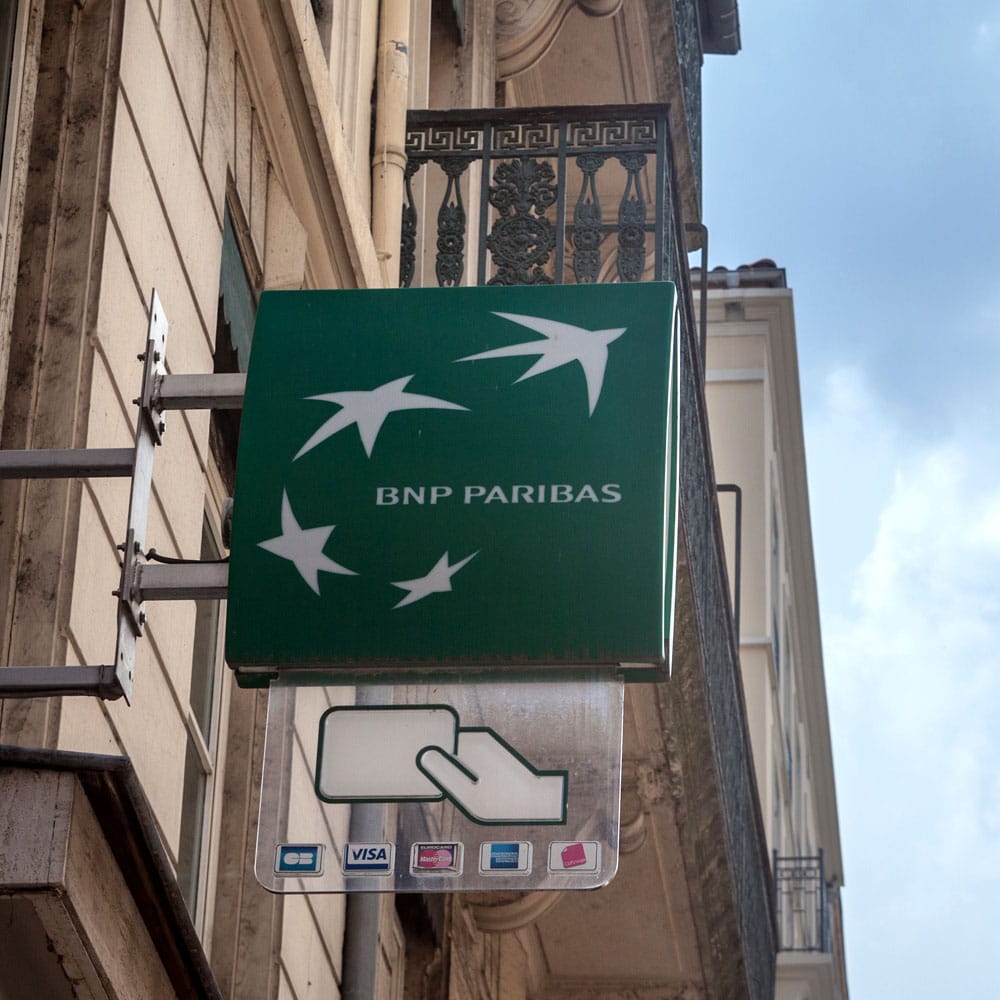
Unless your bank gives you free ATM withdrawals, you should be aware of the fees that both your bank and the ATM’s bank charge to withdraw cash.
Luckily, most European ATMs don’t charge a fee on their end but your home bank probably will.
Expect to pay between $2-$5 per withdrawal — which can really add up if you make multiple small withdraws. That’s why I recommend taking out larger chunks of cash so you pay fewer fees. Personally, I usually withdraw $200-$300 at a time.
Furthermore, don’t be shy about asking your bank to refund one or two of these foreign ATM transaction fees as most will often do it. Learn more about Foreign ATM fees.
Not Using a Credit Card With No Foreign Transaction Fees
When it comes to a credit card, it makes sense to get a card that doesn’t charge foreign transaction fees (most cards charge around 3% so you’d pay $30 in fees if you charge $1000).
On the other hand, some, but not all, “no foreign transaction fee” cards charge an annual fee of $95+ so that’s something to consider — however, some of these cards come with other perks like (airline miles, cashback, etc.)
Paying With Debit Cards
Never use DEBIT cards to pay for things. Only use your DEBIT card to withdraw money from ATMs — that’s it.
And only use CREDIT cards (or cash) to pay for things when you travel.
But why? Because places with a lot of tourists have problems with card skimming (i.e. waiters and shop keepers using card readers to make copies of your cards).
Your debit card is directly tied to your bank account so scammers can drain your checking account very quickly. Furthermore, it’s much harder to recover this money and it can take days or weeks to get worked out.
Your bank will also cancel your debit card — which means you’ll have no access to cash.
However, if your credit card is compromised you’ll still be able to get cash via your debit card/ATM. Plus, credit card companies won’t hold you liable for fraud.
Eating in Touristy Restaurants
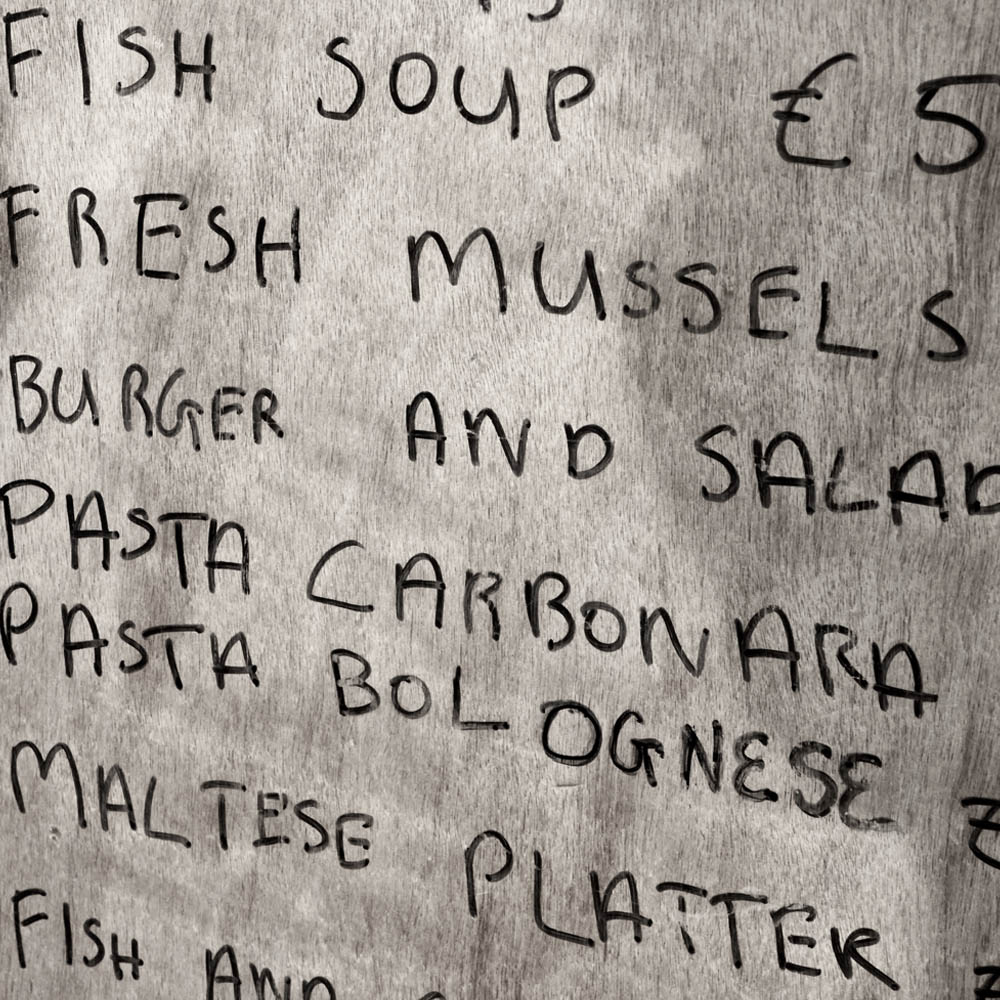
In general, it’s best to eat where the locals eat if you want a good meal at a fair price, but it is rare that these local favorites are located in the touristy parts of the city.
A good rule of thumb is it avoid places where waiters are out front trying to usher you in and places with menus in multiple languages.
Not Planning Where To Eat
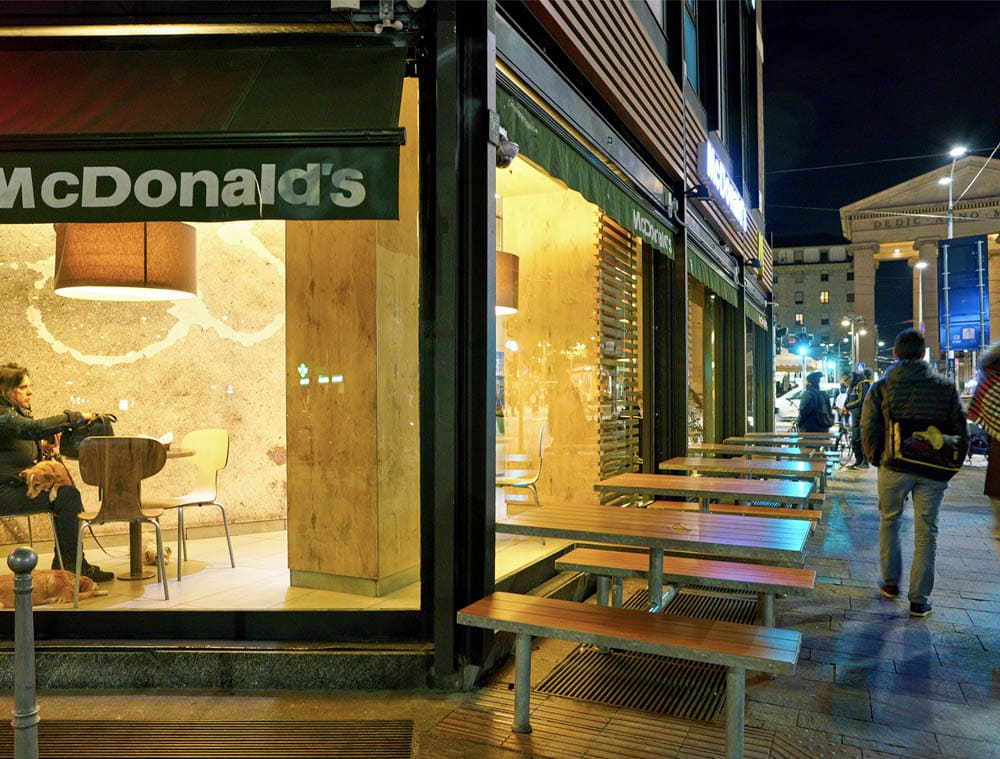
You have to eat so don’t waste your money on bad meals.
One of the best ways to ensure a good meal is to do your research before you head out. Don’t wait until you’re out and about because once you’re hungry, you’re much more likely to settle for anything that’s convenient — which often means you’ll pay too much and/or settle for a sub-quality meal.
This is why I make a note of a few restaurants close to the places I’ve visited for the day so I know I have a few options.
Falling for Taxi Scams
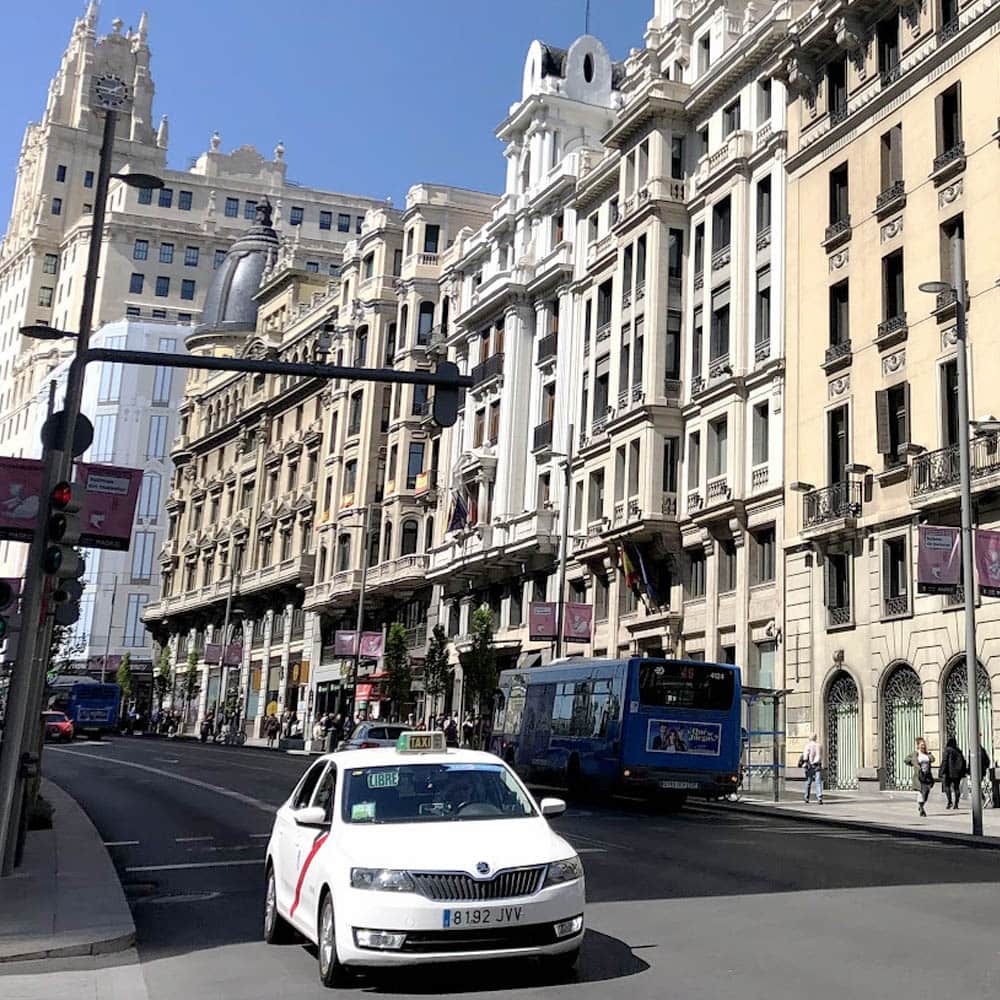
Not all taxis will rip you off but there are plenty of drivers looking to overcharge you.
Do a little research online to see the rules for each place you’re visiting. For example, some cities have laws that mandate flat taxi fees for rides to/from the airport.
I also do a search for “city + taxi scams” to get an idea of common scam tactics and I also research approximate prices so I know I’m not being scammed. The most common scams are:
- Not using the meeter
- Charging extra fees (some extra fees are legit but some aren’t)
- Being taken on a longer route
- Not having change
- Incorrect change
A lot of cities have Uber, Lyft, or a local equivalent and those can be a good option for avoiding scams.
Private Car Scams
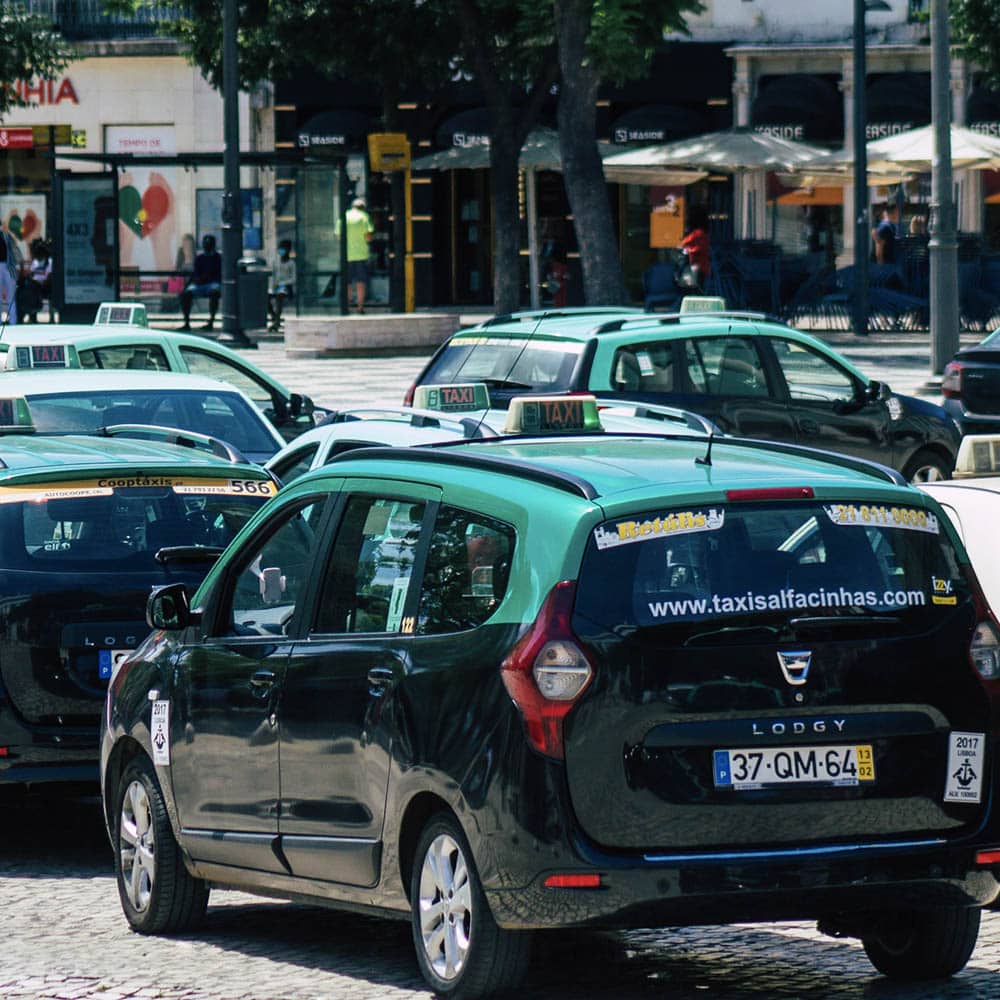
Official taxis have regulated fees but private cars can basically charge whatever they want. Many private car drivers will say they’re taxis (especially at the airport and train station) so always make sure to use official taxis.
Getting Pickpocketed and Falling For Other Tourist Scams
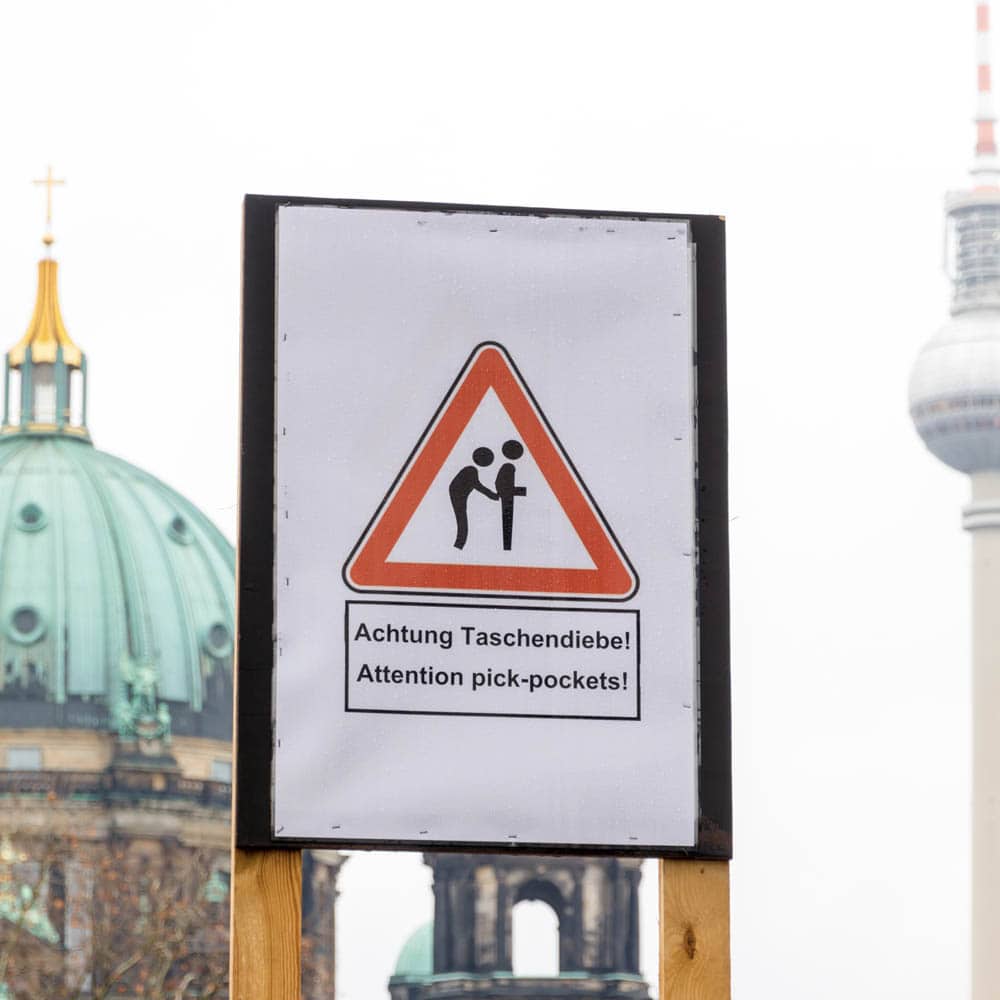
Any city with a lot of tourists will have a lot of pickpockets so don’t become another victim. I’ve written an in-depth article about pickpockets in Europe that outlines all the tricks thieves use.
But it’s not just pickpockets you need to worry about — there are also plenty of other travel scams you should know about.
Getting Phone Stolen
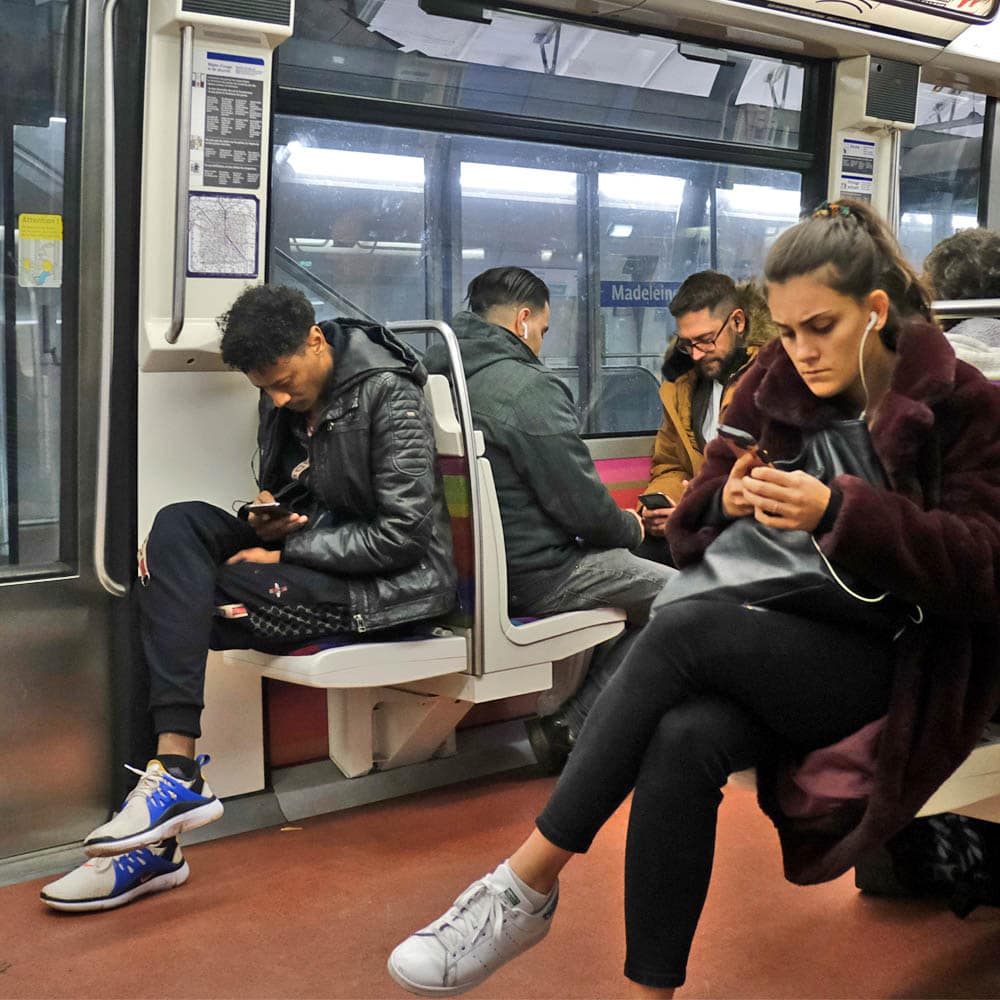
Keeping All Your Cash and Credit/Debit Cards Together
One expensive mistake is keeping all your cash and credit/debit cards in the same place since it makes theft of loss multiple times worse.
I recommend either keeping stuff in different pockets or spreading valuables among multiple people if you’re traveling with others.
Booking Last-Minute Plane Tickets
Airlines know that most people who book last-minute are willing to pay an elevated price because they have no choice. That’s why booking your airfare early is the best way to save money on your airline tickets. I’ve written a guide on how to find cheap flights that dives into the nitty-gritty saving money on airfare.
Booking Last-Minute Train Tickets
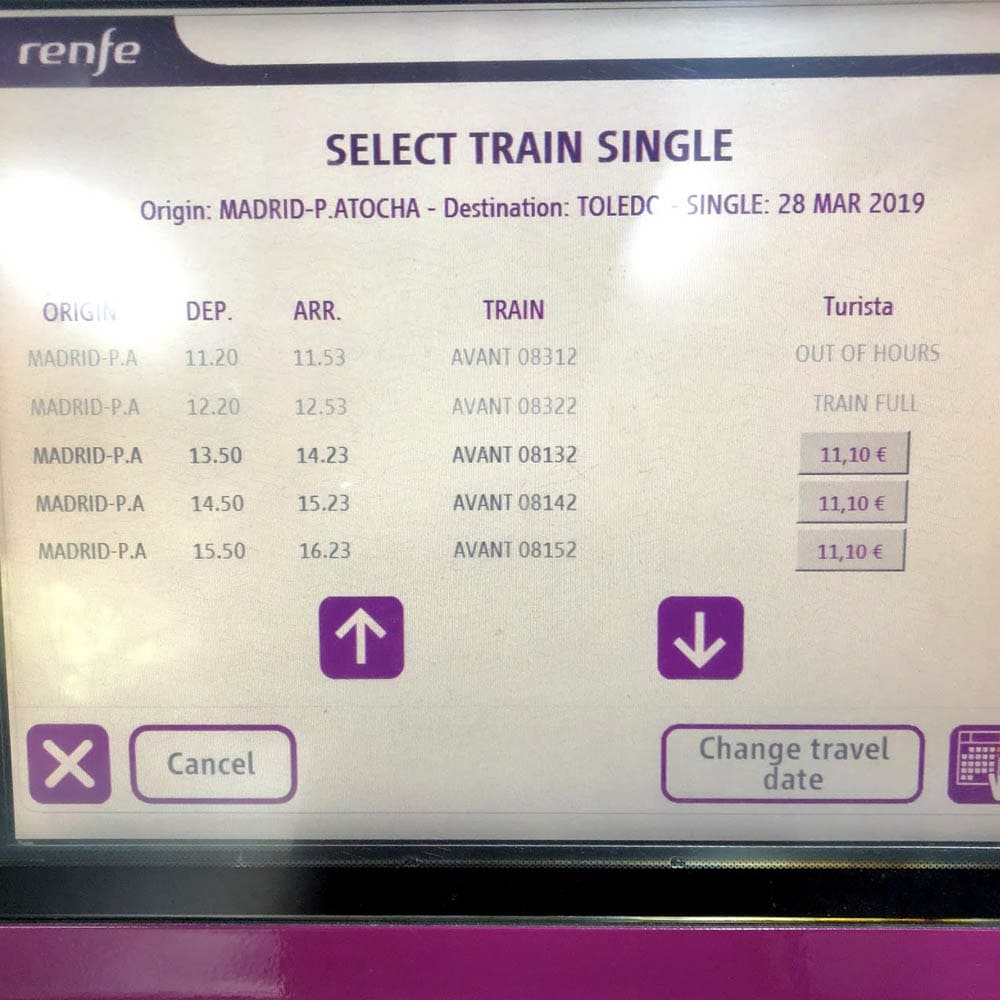
It may feel romantic to just show up at the train station and be on your way to a new city but this can be an expensive endeavor. High-speed rail has adopted the airline’s pricing model that increases the ticket price as the departure date approaches.
In fact, you can often save 50%-60% on tickets by booking a few weeks in advance. You can learn more at Complete Guide To Train Travel In Europe.
Booking Hotels, Hostels, and Rental Apartments Last-Minute
You can sometimes score a decent deal on accommodation by booking last-minute but more often than not, you’ll often end up with a limited choice of options — which often means higher prices.
From my experience this is especially true in the busy season. However, some hotels offer free last-minute cancellation so you can always book at one of those hotels and then keep searching for better deals.
Not Booking Certain Attractions Early

While not always the case, there are many attractions that only allow a set number of visitors each day — which often sell out days or weeks in advance.
However, most of these attractions give a number of tickets to tour companies so you’re forced to book an expensive tour if you don’t book early enough to score a standard ticket.
Misreading 24-Hour Time
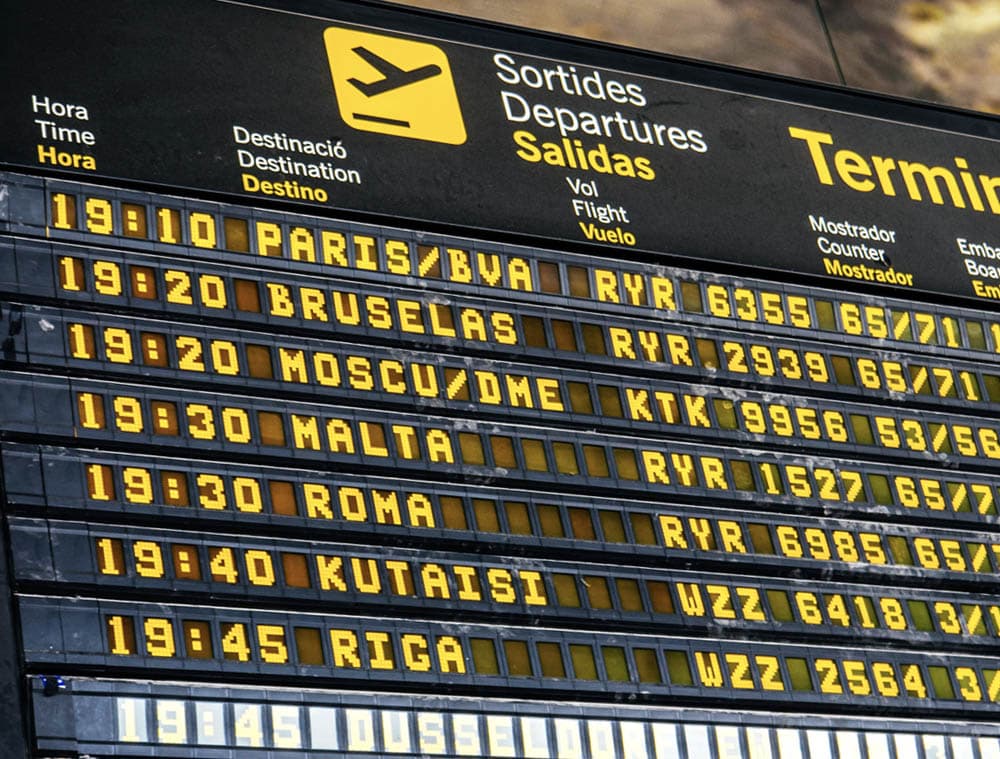
Much of the world uses the 24-hour clock so it’s easy to mix up the correct time when you’re not used to it. This can be especially costly if you mix up train/flight times, museum openings/closings, tour beginnings, and other time-sensitive situations.
I recommend switching your phone over to 24 hour time or get a watch that also displays 24-hour markers.
Not Researching Travel Time
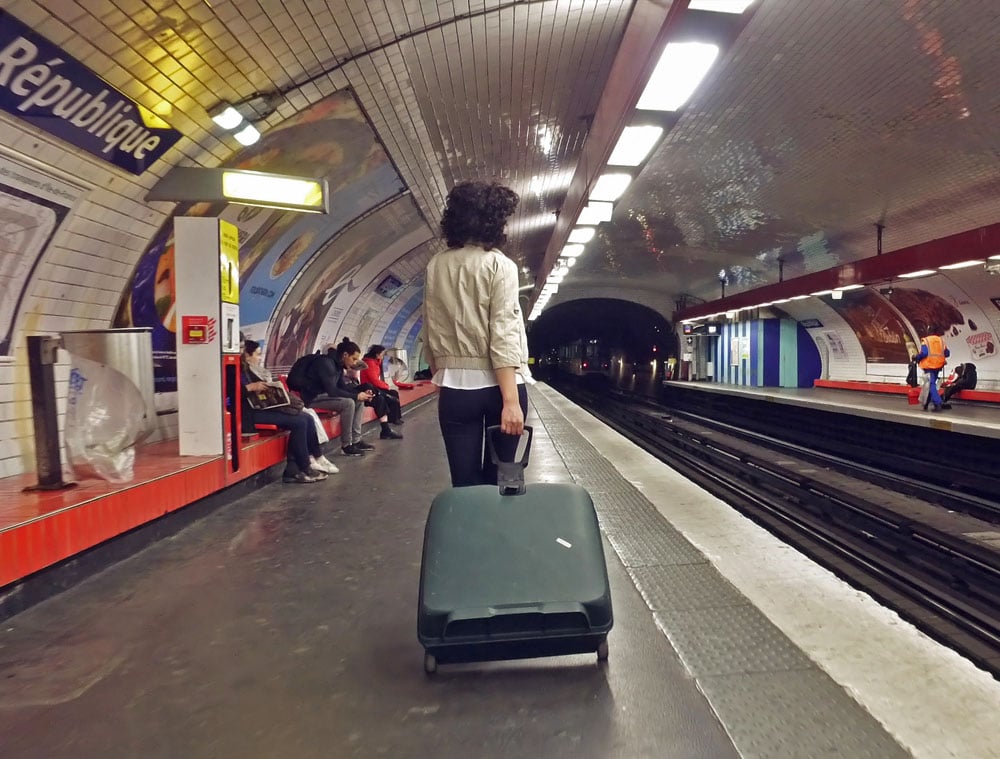
People often underestimate how much time it will take them to get from Point A to Point B. For example, getting to the airport can take an hour or more in many cities — and that doesn’t take into account delays, mistakes, or security. Without proper planning, you might miss your flight and that’s an expensive mistake.
Not knowing how long it takes to get somewhere can also make you miss dinner reservations, tours, attraction entrance times, and it’s simply an easy way to waste your precious time.
Not Planning An Efficient Travel Route
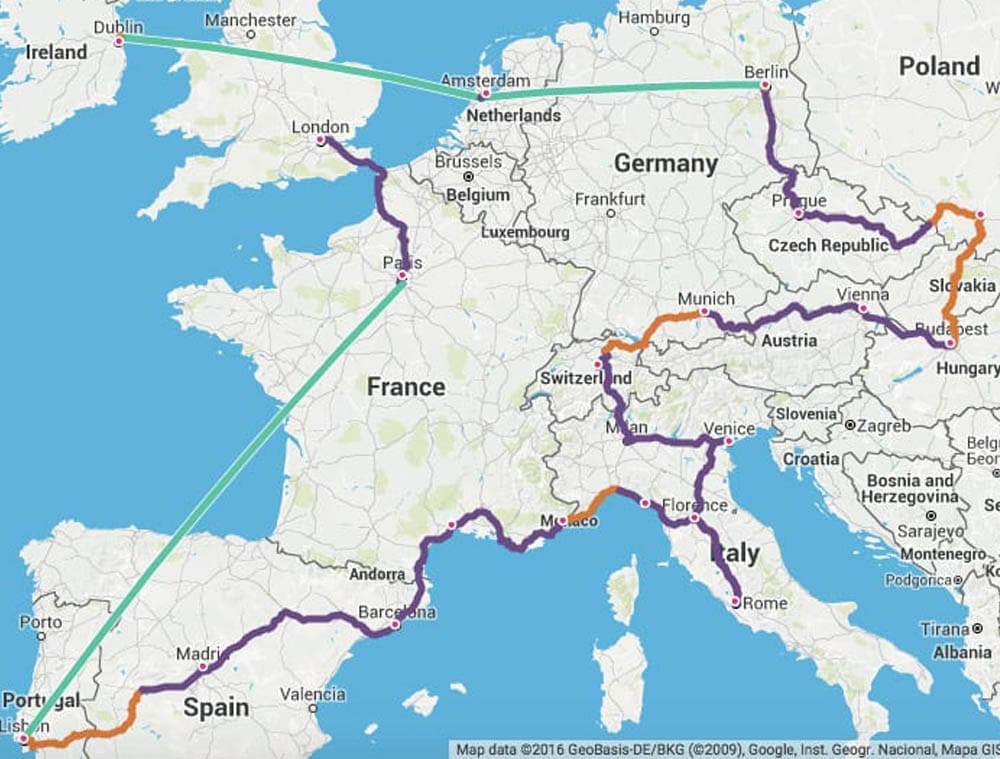
If you’re visiting multiple cities then it’s wise to plan your itinerary in a logical manner that minimizes travel time and ideally eliminates backtracking. In most cases, it’s cheapest to travel in a circle.
If possible, consider flying on an “open jaw” ticket (i.e. you fly into one airport and fly out of another airport). This eliminates the need to travel back to your arrival city — saving you time and money.
Missing Flights and Trains
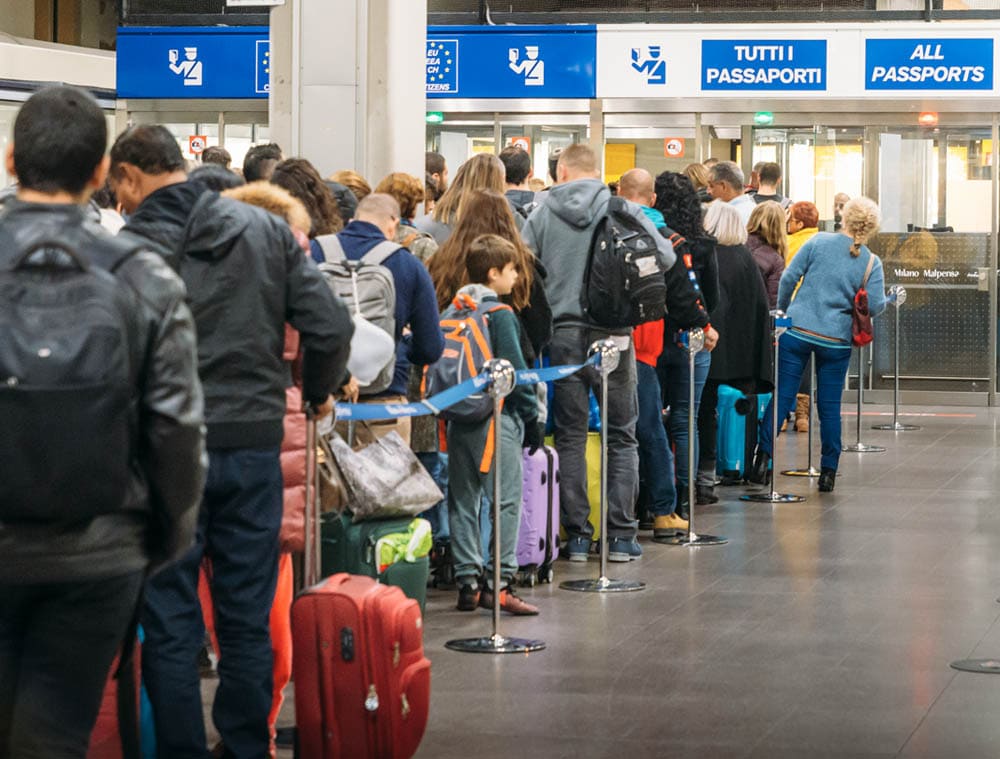
One of the most costly and easy travel mistakes you can make is missing a flight or train. It’s especially costly since most flights and many train tickets are non-refundable and unchangeable.
- Know how long it takes to get to the train station or airport: Public transportation isn’t always efficient or on-time so give yourself some extra time.
- Assume you’ll get lost or confused: It’s easy to get turned around as you make your way to the station or airport. Even finding your train at the train station can be confusing at large stations so giving yourself a little extra time is smart.
- Make sure you know the correct train station/airport: Many cities have multiple train stations and airports so it’s not uncommon for people to go to the wrong one.
- Check public transportation hours: Public transportation doesn’t always operate super early in the morning so research alternative transportation options if needed.
- Pack the night before: Rusing to pack in the morning is never a good idea so get prepped the night before so you can be on your way the next day.
- Delays at ticket machines and ticket windows: These days most train tickets can be purchased at the automated ticket machines but there can be lines. And, if for some reason the machines aren’t working for you, you’ll need to visit the ticket window — which can have very long lines.
- Being slowed down with luggage: Even light packers will be slowed down by their luggage. But, if you’re hauling around a ton of heavy suitcases you’ll want extra time since they’ll slow you up considerably.
- Rush Hour: If you’re taking a taxi or bus you should pay attention to rush hour times as you might find yourself unexpectedly stuck on the highway.
- Not accounting for airport security and check-in: Don’t forget to add in extra time at the airport so you can check-in, go through security, and find your gate.
Departing At The Wrong Train Station
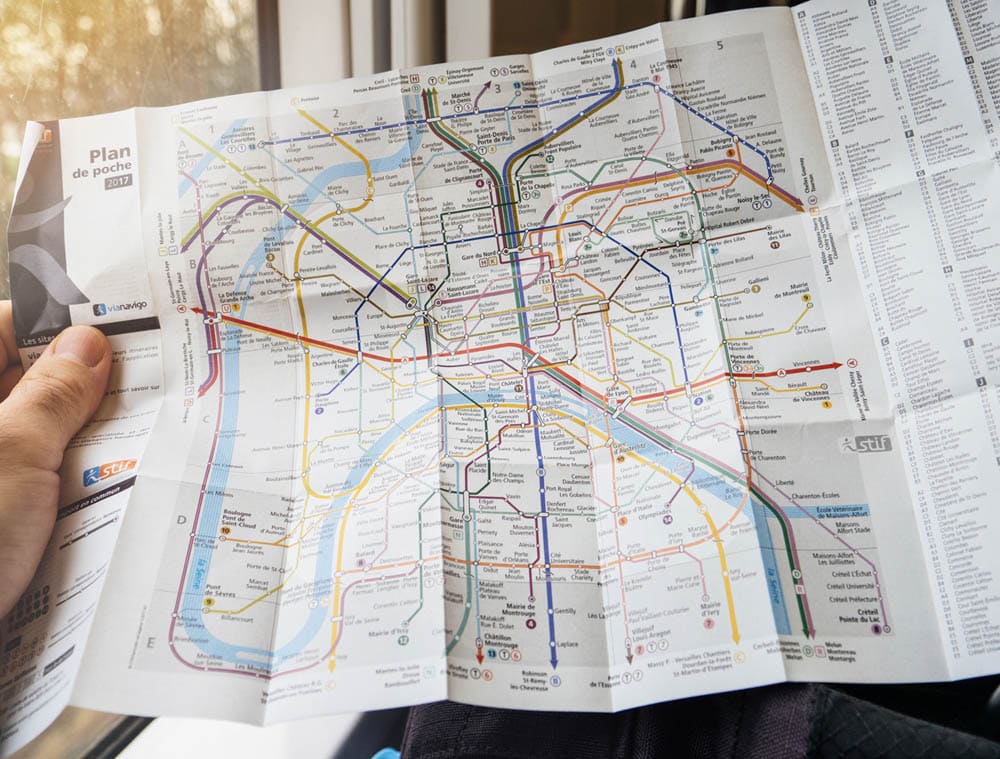
Getting off at the wrong train station is an easy mistake when you’re not familiar with the language or the city. Many cities have a few smaller train stations outside the main train station that serve the suburbs and outlying towns. It’s confusing because these smaller stations will often contain the name of the main station but then it’s followed by the smaller town.
Not Watching Your Budget
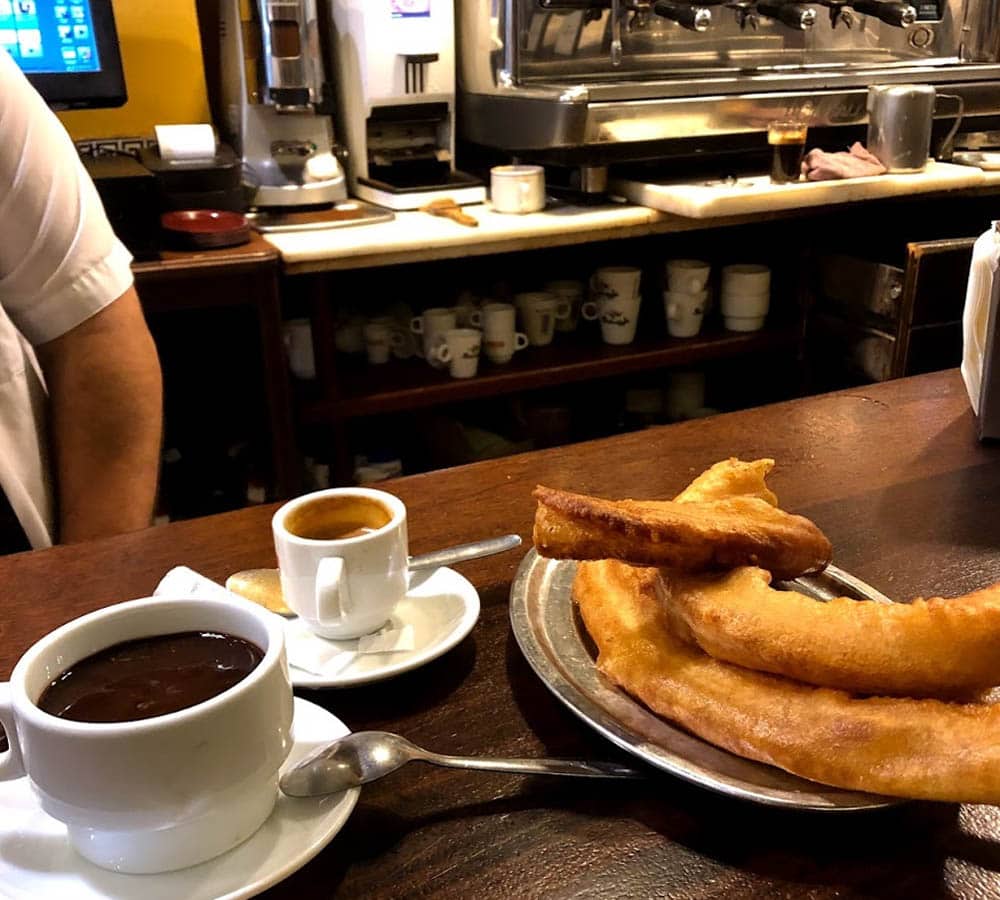
I know it sounds like a no-brainer but it’s easy to overspend simply by not paying attention to your budget. This is where most people get into trouble — a gelato here, an eclair there, add a few beers… and before you know it, you’ve just dropped some serious cash without thinking.
I recommend writing down everything you spend and looking over your budget every day. If you’re anything like me, you’ll quickly see that you’re spending way more than you realize.
Overbooking Your Trip
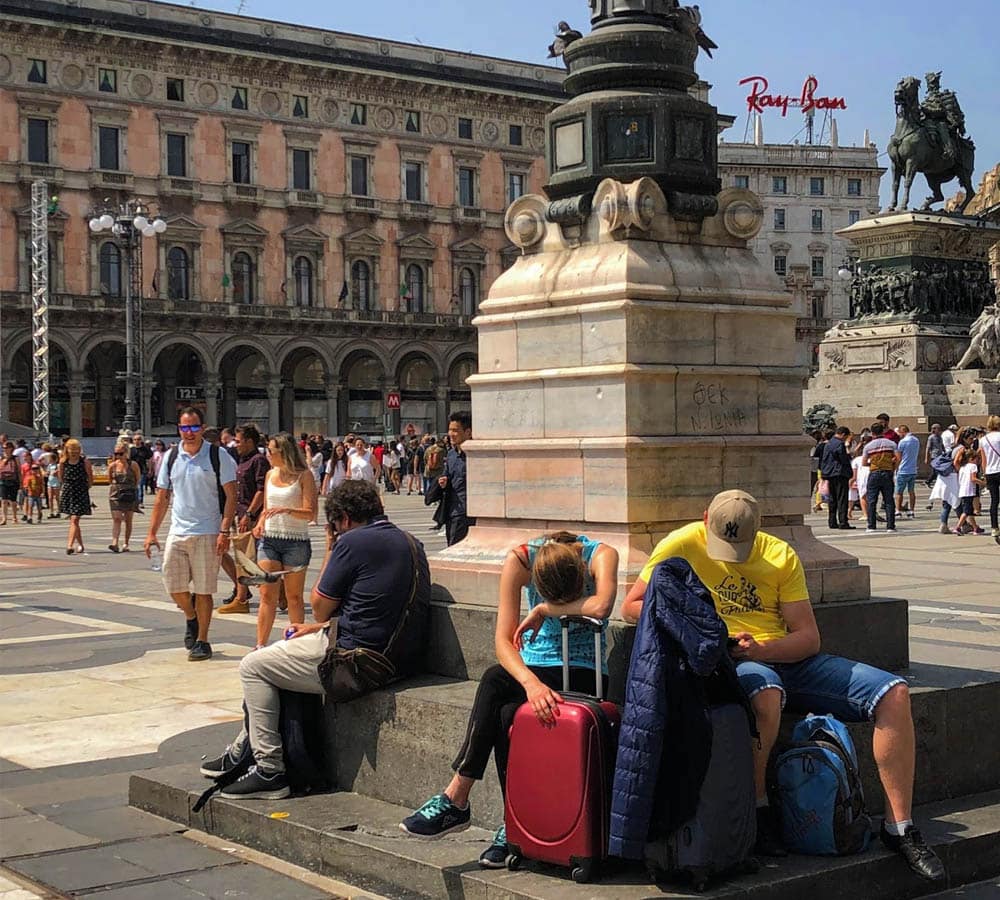
Overbooking your trip (i.e. trying to see way too much) ends up costing you in more ways than one.
First of all, trying to visit many locations or attractions naturally also increases your travel costs.
But more importantly, trying to do too much leads to burnout — which makes your entire experience an exhausting blur. And if you can’t remember your travels then that’s a costly mistake in my opinion.
Exhaustion can also learn to illness and who wants to spend their trip being sick?
Overpaying Baggage Fees
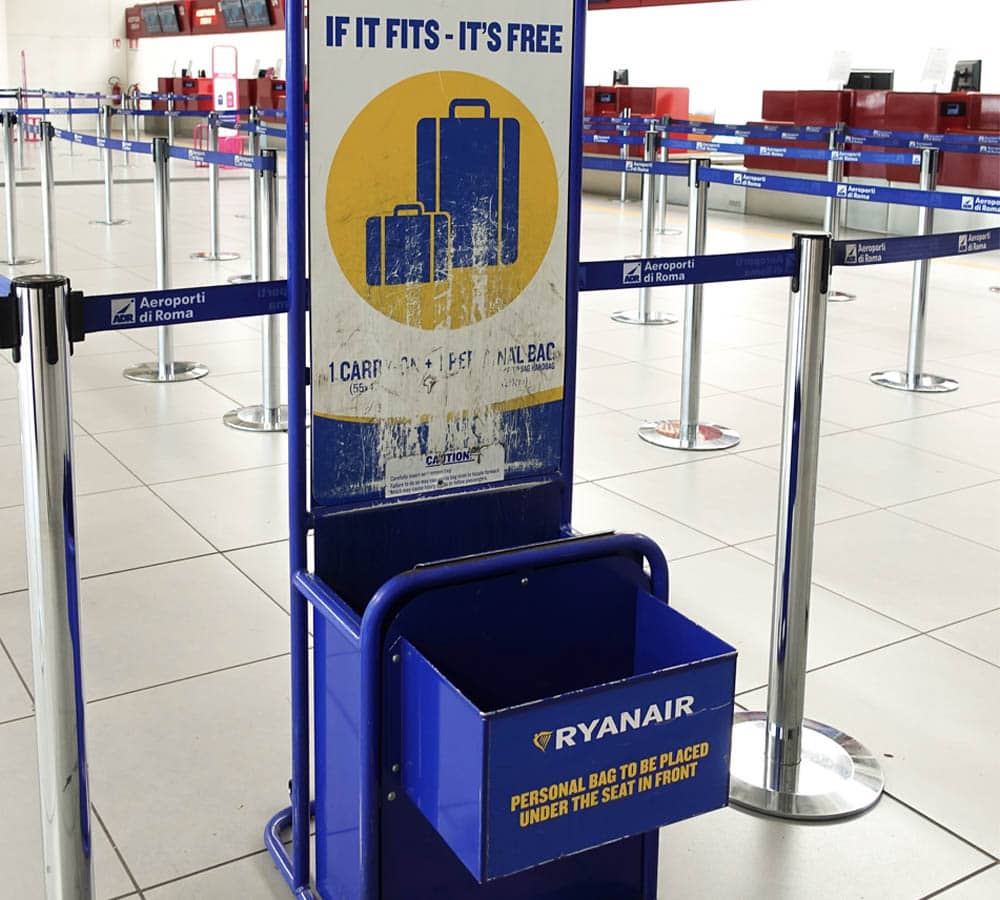
Europe has a ton of cheap flights but nearly all of them charge hefty fees for checked bags. The airlines are also very stingy about their carry-on baggage weight and size limits so a lot of people are shocked when the airline makes people check their bags.
Therefore, if you’re not careful, you can quickly pay hundreds of dollars in fees if you take multiple flights.
Personally, I try to travel with only a carry-on but if that’s not you’re style I recommend only traveling with a single checked bag.
Not Comparing The Full Costs of Flights vs Trains
The decision between taking the train or flying isn’t as simple as the price of the tickets — there are many things to consider.
First of all, the price of getting to and from the airport can be expensive and time-consuming. Public transportation can often be $10-$15 and taxis can easily be $50-$100.
On the other hand, train stations are often located right in the middle of the city so there are practically no extra travel costs.
You might also have to pay for checked luggage if you fly so that’s an extra cost you won’t have when taking the train.
The next issue is travel time — which is just as valuable as money. For short distances, the train wins every time. For long distances, I usually opt for flying but I’ll almost always choose the train for medium distances since train travel is much more comfortable and less of a hassle.
Being Overcharged At Restaurants
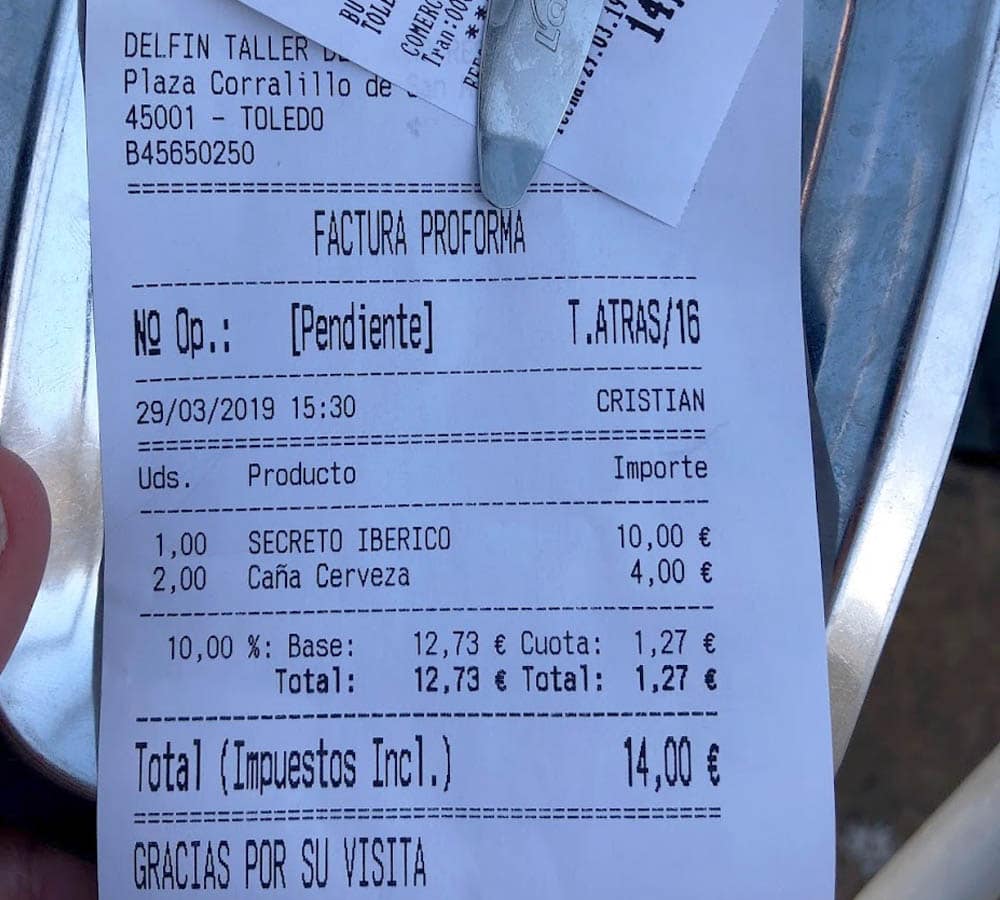
Being overcharged at restaurants is common in touristy areas — there are even stories of tourists being charged over $100 for ice cream in Rome. That’s why it’s always important to study the bill.
That said, in some locations there are standard extra charges for service (i.e. tip), sitting outside, and other various fees. Do a little research to see what extra fees are standard.
Over Tipping or Tipping When Not Needed
As Americans, most of us are used to tipping 15%-20% at restaurants. However, in many countries, the tipping practices are vastly different so you could be paying way too much for your meals if you tip like you do at home.
In many countries, the tip (sometimes called service) is already included in your bill. Sometimes it’s customary to round up to the nearest euro or maybe tip around 5%.
Paying for Bottled Water and Bread
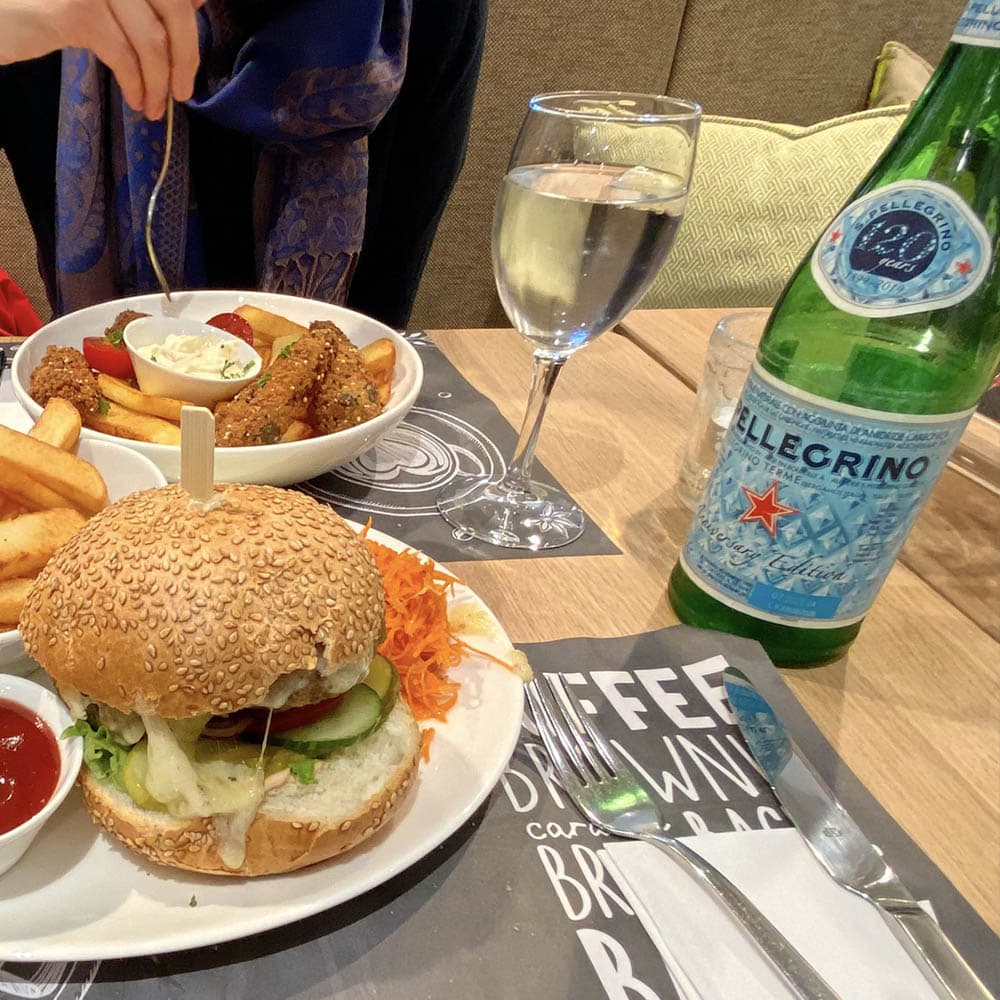
If you ask for water in Europe you’ll almost always be given bottled water (which can range from $3-$6 for a large bottle) so ask for tap water if you don’t want to pay extra.
One tricky charge is bread. In some restaurants, they’ll put bread on your table automatically but they’ll charge you if you eat it.
Not Knowing About Free Museum Days
Many museums and some attractions will have at least one free day every month and some have a free day every week (or even free hours daily). You might as well do some research so you can plan your visit around these free days.
Not Knowing Attraction Hours
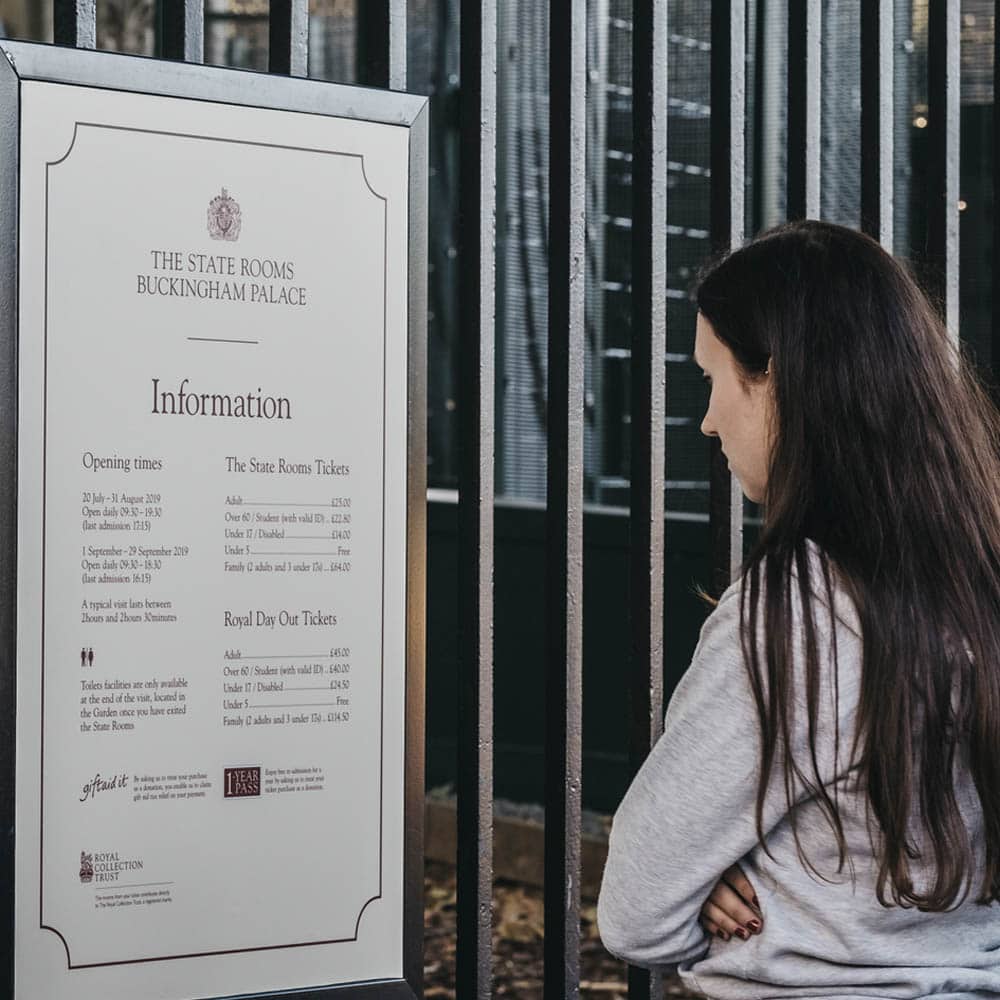
Some attractions close earlier than you might expect so it ends up being a waste of money if you show up late and are then forced to rush through your visit because it’s closing soon.
Paying High International Data Charges
Check your phone’s data policies as some charge crazy high fees for international data — some have free data and others let you upgrade your plan to get high-speed international data.
Do be aware that most phones are always accessing the internet (checking emails, checking the weather, news apps accessing data, maps/location services, etc) even if you’re not actively surfing the web. So you could get a surprise bill when you get home if you’re not careful.
Not Using Museum Passes / Wasting Money On Museum Passes
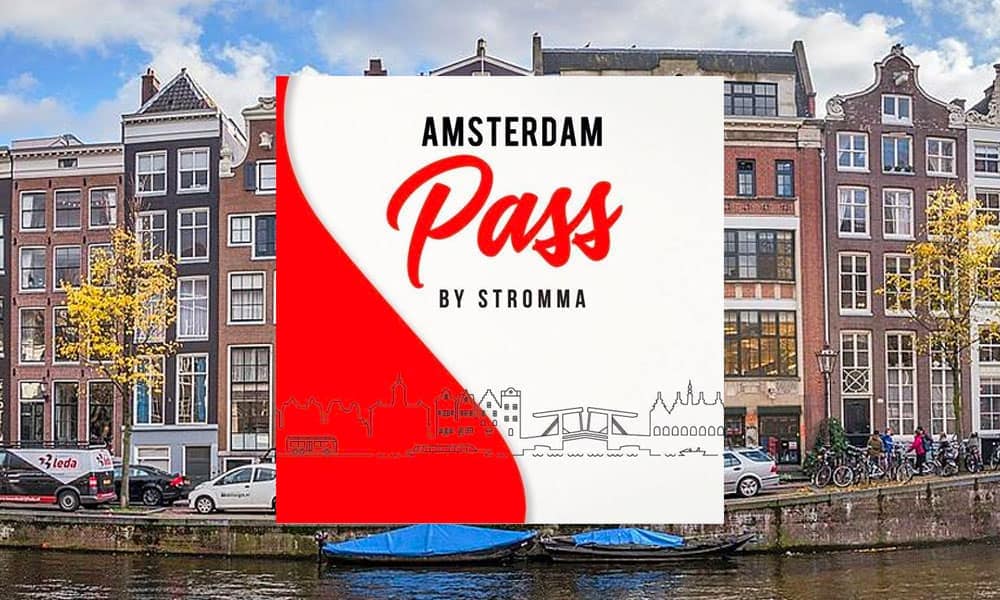
Ok, here’s a bit of a tricky one.
A lot of popular cities have museum passes that give you access to most of the museums and a handful of attractions. With a bit of planning, you can end up saving a good amount of money if you use the pass strategically.
On the other hand, museum passes don’t fit every travel style so a lot of travelers end up wasting money because it would have been cheaper to pay as you go.
And thirdly, some people try doing everything covered by the passes to make sure they get the most “value” from museum pass but they end up doing a bunch of stuff they probably don’t enjoy that much. In this case, I still consider it a waste of money. Learn more about museum passes (scroll to the bottom of the page).
Not Validating Train Tickets
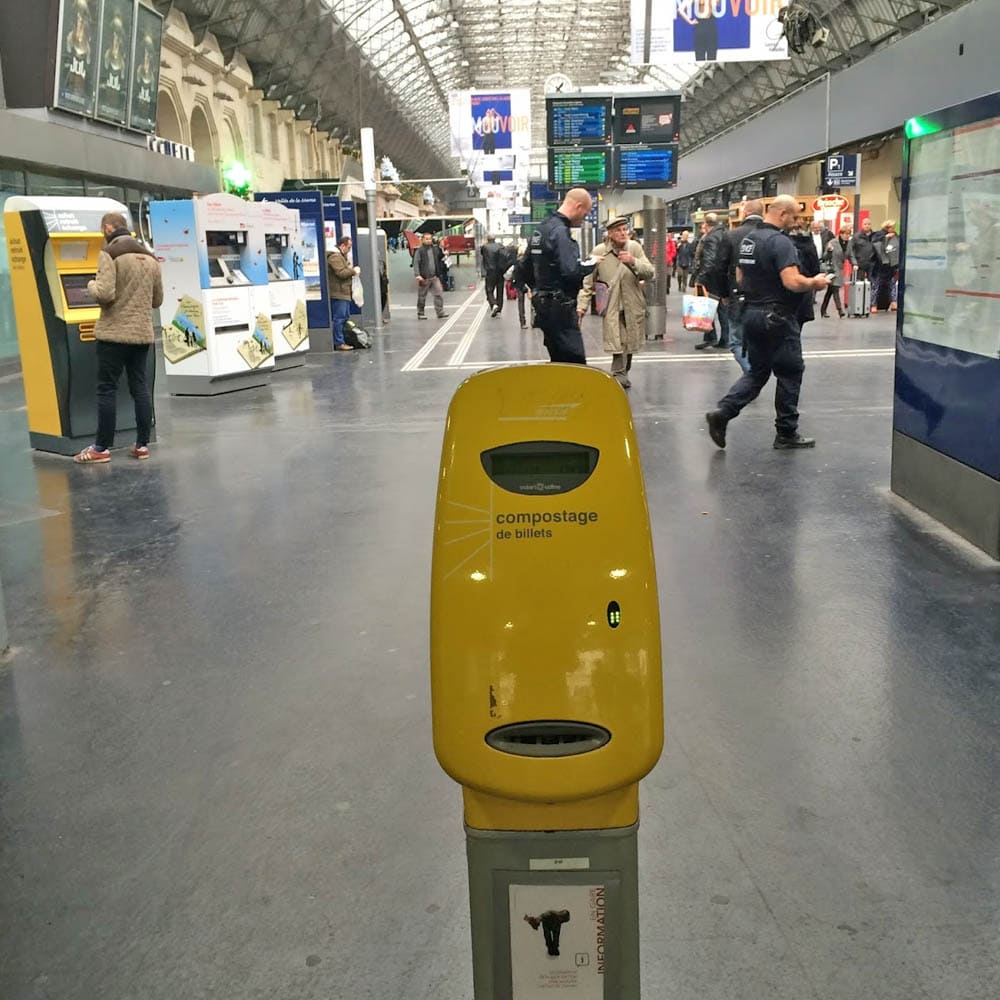
Some train tickets must be validated before you board the train. You might face a fine if the ticket inspectors see that your ticket isn’t validated. As a general rule, if your ticket doesn’t have a date and time printed on it then it needs to be validated. If you’re unsure, just as one of the train employees.
Riding Public Transport Without Paying
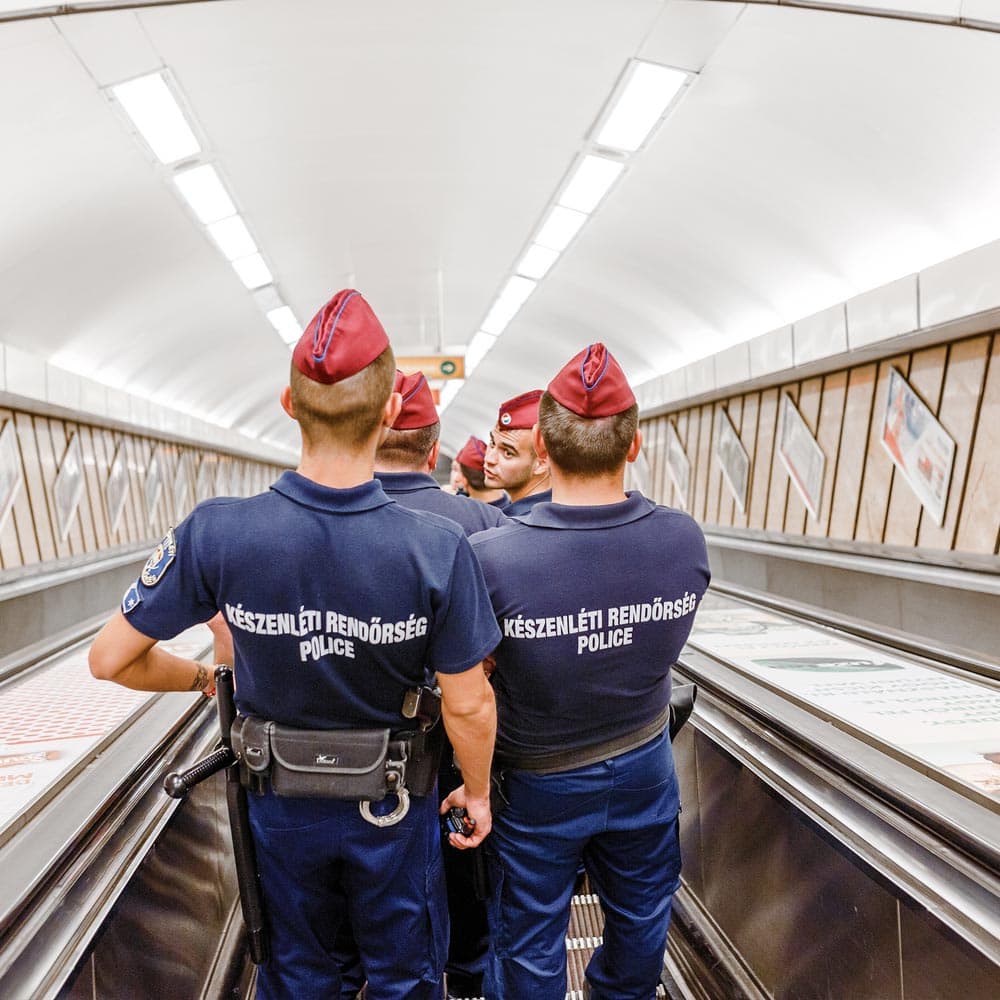
In many cities, public transportation is on the honor system but there will be random ticket checks by both uniformed and uninformed staff. If you’re caught without a ticket then you’ll be charged a heavy fine — usually around $25-$50.
Not Keeping Your Subway & Bus Ticket
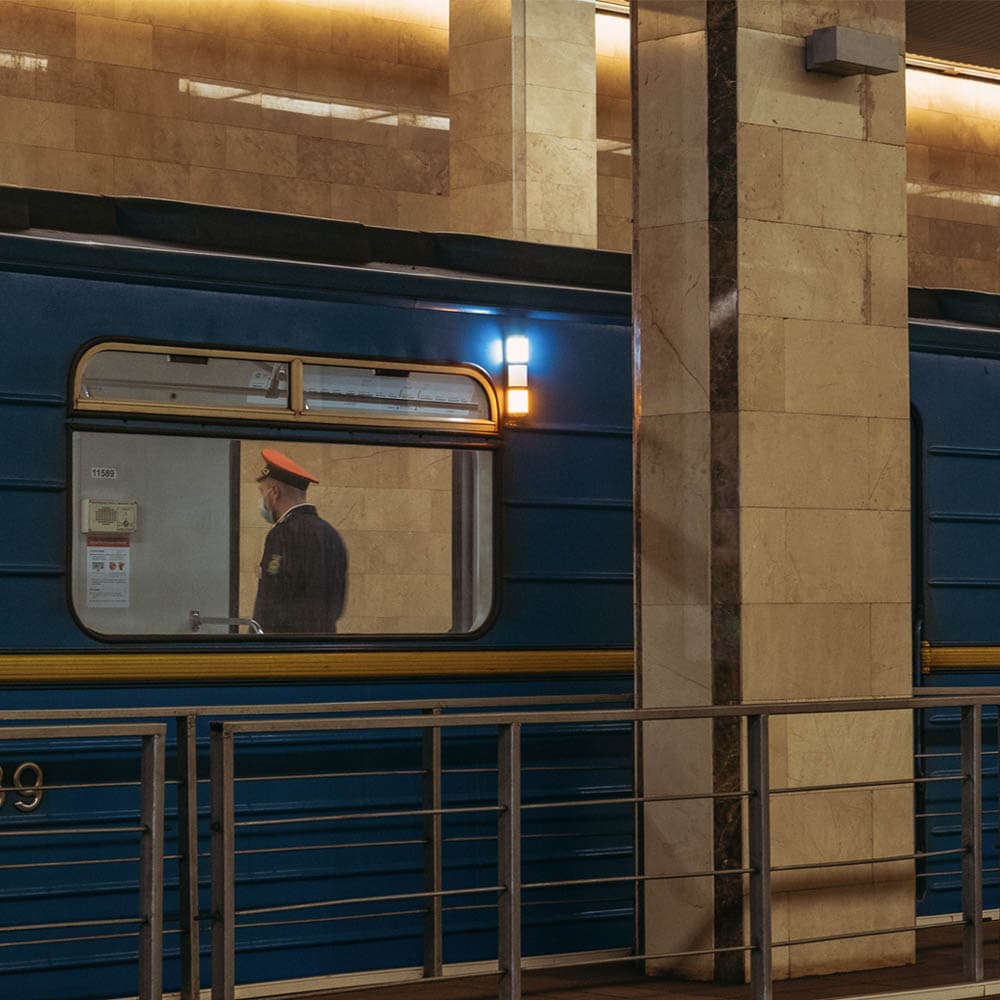
Always hold on to your subway tickets because many cities perform random ticket checks to catch people who jump the turnstiles. So if you throw out your ticket the ticket checkers will still fine you even-though you paid.
Not Checking Your Passport’s Expiration Date
Check your passport ASAP to make sure it’s currently valid. In fact, most countries require the passport to be valid six months past the date of your trip.
Getting a new passport can take 10 weeks but there are expensive rush services available. It’s best to avoid this since it just adds a lot of stress.
Not Knowing Cancellation Policies
When it comes to travel, there seem to be very few things that offer favorable cancellation policies. In short, not much is refundable or transferable.
Most flights are not refundable or have a very high change fee. Most high-speed train tickets aren’t refundable/changeable. Many hotels are not refundable. The list goes on. That’s why it’s very important to know the policies so you don’t get caught off-guard.
Not Having Travel Insurance
Travel insurance is a cheap way to prevent getting hit with huge medical bills while on the road or having to pay for non-refundable travel expenses if your trip gets canceled.
The main thing travel insurance covers are medical expenses — don’t expect your normal health insurance to cover anything that happens abroad. As we all know, medical expenses can cost tens of or hundreds of thousands of dollars.
Travel insurance also covers trip interruptions which prevent you from using the non-refundable things you’ve already paid for — like tickets, reservations, etc. I use World Nomads travel insurance.
Assuming Your Credit Card Offers Rental Car Auto Insurance
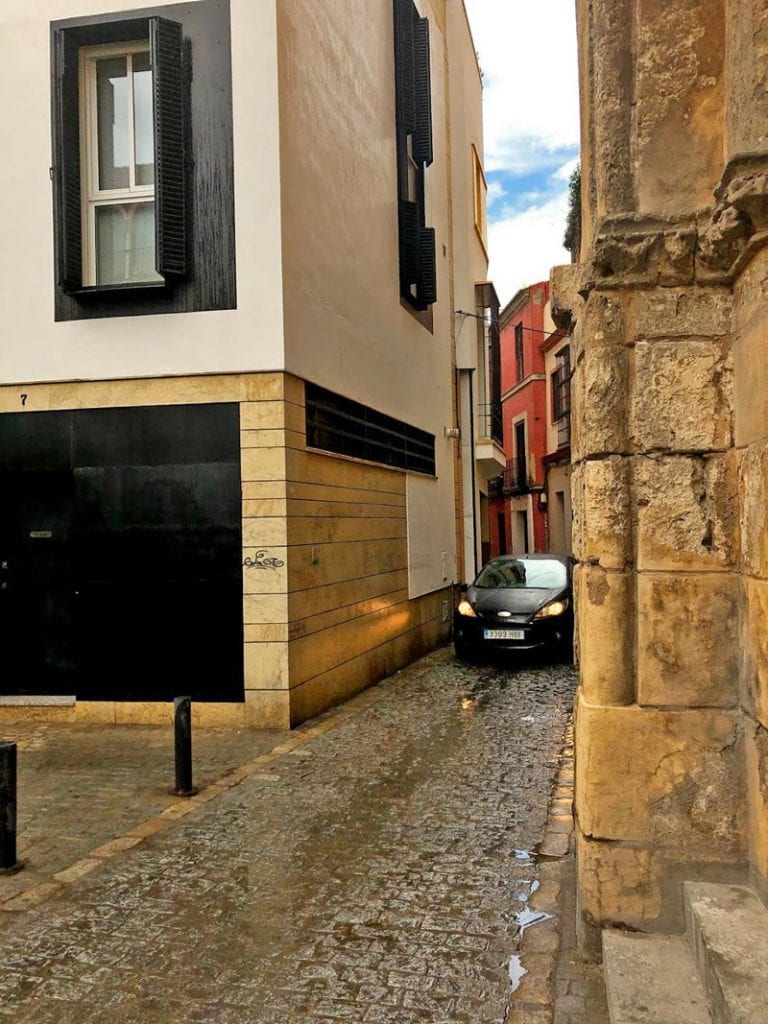
A lot of credit cards offer some type of rental car insurance but you’ll want to get the full details. Furthermore, these benefits only help if you actually book the rental with that card.
By the way, most debit cards don’t offer any extra protection so stick to a credit card when renting a car.
Renting A Car Without Knowing How To Travel A Manual Transmission
Driving can be a fun way to travel around Europe and other parts of the world. However, most rental cars have manual transmissions. Yes, you can usually get an automatic but they’re often 2x-3x more expensive and the selection is limited.
Not Using Student Discounts
Many attractions offer student discounts and these discounts often extend until you’re around 26. Sometimes you’ll need a student ID with the date on it but not always — sometimes it all comes down to the person at the ticket window. Regardless, it doesn’t hurt to ask.
Using Taxis and Uber
Many cities have an excellent public transportation system — especially within Europe. But many travelers find public transportation too confusing or intimidating.
Unsurprisingly, relying on taxis will cost you a fortune so I recommend only using them in rare circumstances.
Using (Certain) Airport ATMs
Most ATMs in Europe don’t charge you a fee — these are ATMs associated with banks. However, there are a few non-bank ATMs in airports that do charge fees (usually around $3-$4) to withdraw money.
In most cases, you can find no-fee ATMs at airports but the fee-based ATMs are usually located right as you exit the gate so it pays to look around first.
Using Money Exchange Offices
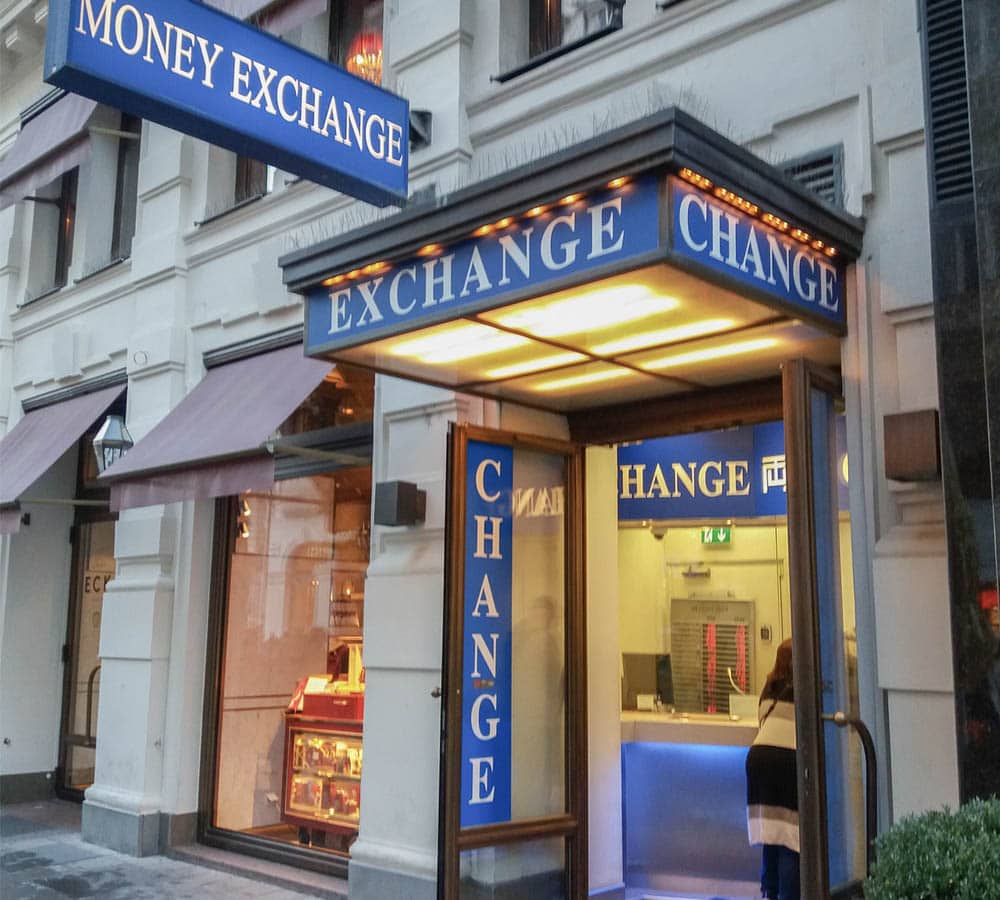
Money exchange offices charge large fees and give poor exchange rates so they should be avoided if possible. If you need cash, skip the money exchange offices that you’ll find in every airport/train station and simply withdraw it from ATMs.
Getting Large Amounts of Foreign Currency At Your Local Bank
Many travelers get large amounts of foreign currency from their local bank before their trip but this is costly and often unneeded.
As mentioned before, the best way to get cash is to withdraw it from an ATM once you arrive at your destination. If you get cash from your local bank, you’ll often be charged a fee, and you’ll get a poor exchange rate. Furthermore, carrying large amounts of cash can also be dangerous and costly if it all gets lost or stolen.
If you do want a little foreign currency, I recommend just getting $100-$200 worth as that will help you pay for anything before you’re able to find an ATM.
Visiting During Tourist Season
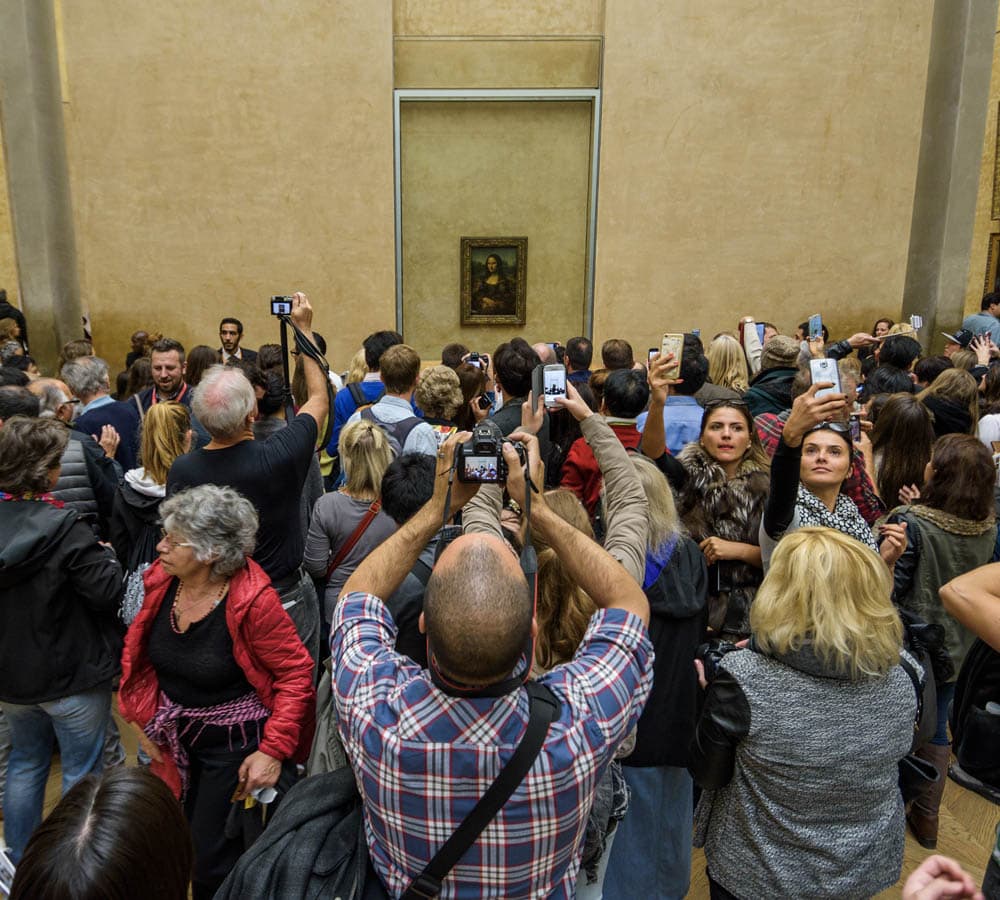
While not exactly a mistake, visiting during the tourist season will result in higher accommodation and transportation prices. You’ll also spend more time waiting in line at attractions so that cuts down on your enjoyment as well.

No Funny Business
The Savvy Backpacker is reader-supported. That means when you buy products/services through links on the site, I may earn an affiliate commission—it doesn’t cost you anything extra and it helps support the site.
Thanks For Reading! — James
Questions? Learn more about our Strict Advertising Policy and How To Support Us.



